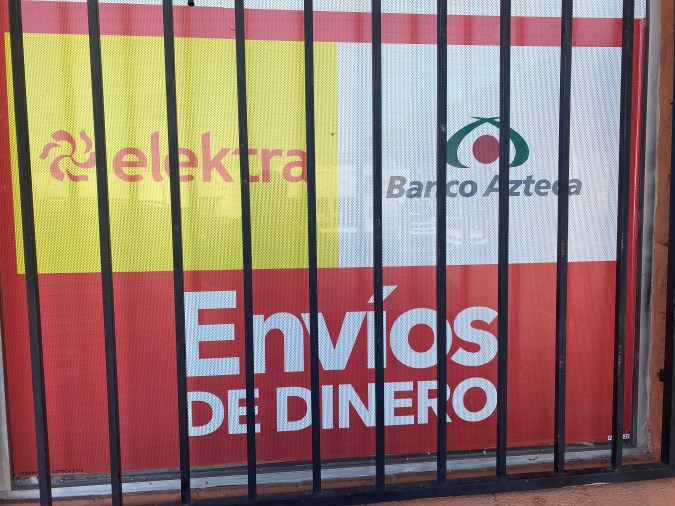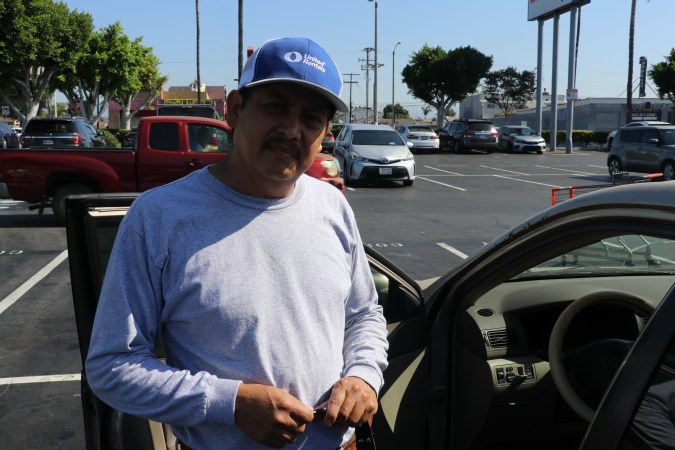Gregorio Córdova Murrieta, father of five children and originally from Teziutlán, Puebla will become the first Mexican citizen who has been tracked by the National Security Research Department (HSI) in their remittance shipments and faces deportation.
Córdova Murrieta, was caught in Oʻahu, Hawaii. On June 15, immigration agents watched the duplex where she lived with her fiancee, Grace Parra who opened the door and requested a court order. The agents showed him one, entered and handcuffed Córdova.
The 48 -year -old man was photographed and described as a medium -sized man, of brown skin, approximately 1.62 meters to 1.68 meters tall.
Córdova Murrieta is held at the Federal Detention Center in Honolulu, since June 26. On September 9, the sentence against him is scheduled. It could be imprisoned for having re -entered for the third time irregularly to the United States 17 years ago or immediately deported.
The Mexican case is the first known as the result of information provided by the Moneygram money shipping company to federal immigration authorities.

Who shares financial information?
His private information was obtained by a non -profit organization of Arizona: Transaction Record Analysis Center (Transaction Record Analysis Center (TRAC), a little -known database that is accessible to more than 600 federal, state and local agencies of the forces of the order of the United States without judicial supervision.
Trac was created in 2014 by order of the Attorney General of the State of Arizona to supervise international money transfers between the United States and more than 20 countries, – including Mexico – as part of the agreement with Western Union against drug trafficking. The data collected by Trac include the complete names of the sender and the recipient, as well as the amount or quantity of the transaction.
“In Moneygram, protecting the privacy of our clients is our highest priority. We do not voluntarily share data on transfers with third parties, unless the law demands it,” the company replied to the opinion

Through Trac, the dark database has records of millions of money transfers made in the United States, including names, addresses and other details that identify the senders as Gregorio Córdova Murrieta.
The General Consulate of Mexico in Los Angeles, confirmed that none of the people arrested by ICE at the time they have been interviewed by Consulx has been [detenido, arrestado o repatriado] for money shipments.
“I would question the legality of the surveillance of the United States government when we send money to our families,” said Rafael Pérez, a Jalisco man who sent $ 100 to one of his daughters. “That they are watching or tracking us is wrong.”

Mrs. Carmen Mercado, a native of Zacatecas and who has lived in this country for more than three decades mentioned that, when she worked, she always sent money to her parents.
“I worry that they track remittances, as I also worry about the inhuman treatment that the government is giving to all immigrants,” he said.

The tools that served for the arrest of Gregorio Córdova Murrieta, through Trac, were originally designed to investigate and stop crimes such as money laundering and drug trafficking transactions.
Until the summer of 2024, Trac contained records of 337 million transactions, according to a National Security Investigation Bulletin (HSI) 2024.
Salvador Sanabria, executive director of El Rescue commented that, if Moneygram shared the information of Córdova Murrieta al Hsi, “I have no doubt that others can also do it.”
A trap for consumers?
In this way, money shipping companies could become a trap for irregular immigrants in the United States.
Western Union or Ria Financial companies did not answer the questions of whether they share the private information of their clients to the federal government, the measures they take to protect them or the consequences they would suffer if immigrants stop using their services and do not send money to their countries of origin,
“I don’t know if they voluntarily as companies are sharing[people’sinformation”saidtheactivist”ThequestioniswhetherthefederalgovernmenthasaccessthroughtheDepartmentofTreasurytoalltransactionsoffamilyremittancesthatareoriginatedfromtheUnitedStates”[lainformacióndelaspersonas”dijoelactivista“LapreguntaessielgobiernofederaltieneaccesoatravésdelDepartamentodelTesoroatodaslastransaccionesderemesasfamiliaresqueseanoriginadasdesdeEstadosUnidos”
Sanabria added that the case of the Mexican tracked by immigration authorities suggests that the Treasury Department or another federal agency that monitors money shipments originated from the United States through family remittance platforms, has access to immigrant information.
He predicted that if the information is shared, no one will trust these remittance shipping platforms “and this industry would be modified.”

Impact on the country’s economy
The above could lead to the contraction of the United States economy, because the confidence of users would disappear, who would seek alternative mechanisms to send their family remittances.
“A stampede of companies and money shipping platforms could be given,” he said. “Maybe they could return to the times of sending traveler checks or postal turns, or even sending their money through family parcels.”
The lawyer Alex Gálvez, an expert in immigration issues, said that the economic impact of immigrant deportations “are feeling” and affects 70% of the US economy, “because it is based on consumption” and the government itself is accelerating an economic crisis.
“The actions against immigrants are like a new era of persecution,” said the lawyer. “Money shipment companies will be affected because people will not send money knowing that they are being tracked.”
The countries that receive the greatest remittances from the United States are India, Mexico, China, Philippines, Pakistan and several Latin American countries such as Guatemala, El Salvador, Honduras and the Dominican Republic.

India is the main recipient of remittances worldwide, exceeding $ 100,000 million annually, while Mexico received $ 65,000 million in 2024, according to World Bank data.
The intercept demand
The non -lucrative news organization The Intercept, which has long covered authoritarian governments, multimillionaire oligarchs and democracies in decline worldwide, sued the Arizona Transaction Registration Analysis Center (TRAC), to reveal records on the financial surveillance raid of millions of bank transfers sent to or from Mexico and the border states of the United States.
The financial surveillance program has been in force for more than a decade. It was implemented by the Attorney General of Arizona.
During the last year, the Attorney General of that State has denied multiple records of records on its relationship with the Transaction Registration Analysis Center (TRAC), a non -profit organization that manages a huge database with details about millions of bank transfers sent through Western Union and other companies.
The Intercept indicates that the database, fueled by administrative citations issued by the Attorney General of Arizona, offers a personal vision of the financial life of millions of American immigrants and citizens.
Over the years, the Customs Immigration and Control Service (ICE) has played a fundamental role in the TRAC, not only as the main user of bank transfers data, but also as another source of data, through citations that alarmed civil liberty control agencies.

“The public has the right to know about the massive surveillance that the Government exercises on its citizens,” said Heather E. Murray, associate director of the first amendment of the Faculty of Law of Cornell, which represents The Intercept in the demand.
